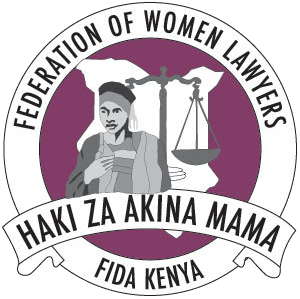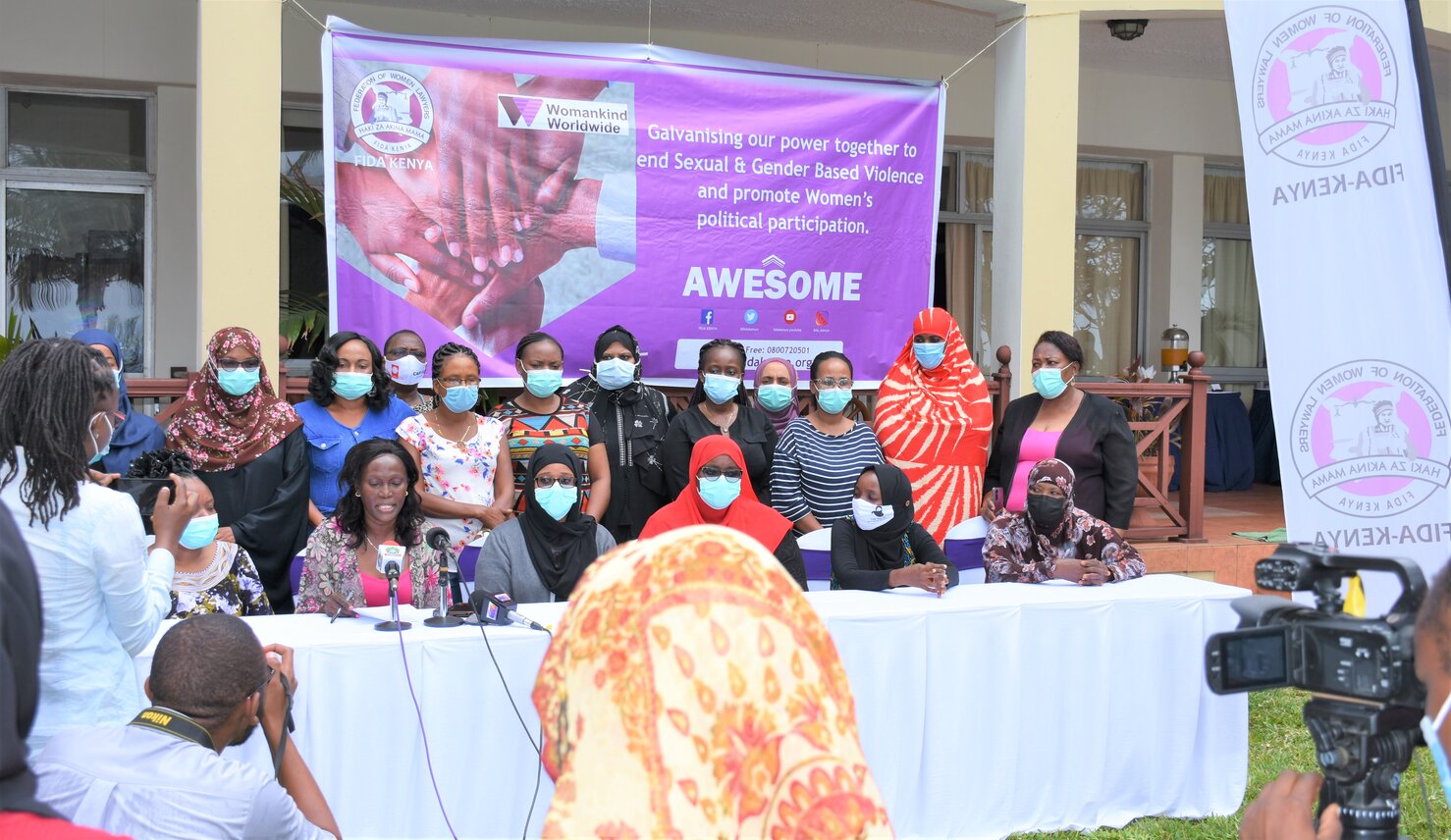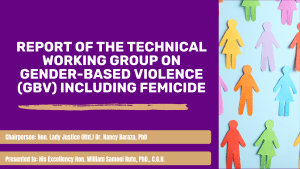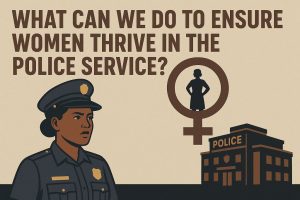Open letter to President Ruto on tracking GBV impact
Dear H.E. Dr. William Samoei Ruto, CGH. President of the Republic of Kenya and Commander-In-Chief of the Kenya Defence Forces
Your Excellency, this year as we celebrate the 16 days of activism, our theme is “Activism to end violence against women and girls”.
Due to the impunity, secrecy, stigma, and shame surrounding it, violence against women and girls (VAWG), one of the most pervasive, ongoing, and catastrophic human rights violations in our time, goes largely unreported.
Various forms through which women experience violence include Sexual violence and harassment (rape, forced sexual acts, unwanted sexual advances, child sexual abuse, forced marriage, street harassment, stalking, and cyber-harassment); intimate partner violence (battery, psychological abuse, marital rape, femicide); human trafficking (slavery, sexual exploitation); female genital mutilation; and child marriage.
According to Kenya’s Constitution, GBV constitutes a violation of human rights.
Our Article 29 asserts that; every person has the right to freedom and security, which includes the right not to be subjected to any form of violence from either public or private sources, not be subjected to any form of torture, physical or psychological, or be punished in a cruel, inhumane or degrading manner.
Article 10 grounds us on national values and principles of governance including human dignity, equity, social justice, human rights, non-discrimination, and protection of marginalized persons and communities.
Further, Kenya ratified the Convention of Elimination of All forms of Violence (CEDAW) which urges the state to respect human dignity and the capacity to make an informed choice as well as institute measures including legislation, regulations, customs, and practices that constitute discrimination against women.
Your Excellency, violence is widely recognized as hindering social and economic development as well as the achievement of internationally agreed targets such as the reduction of poverty.
Violence against women prevents women and girls from participating equally in social, economic, and political life and perpetuates the cycle of poverty.
Violence against women and girls also carries an economic cost through the negative impact on education, employment, undermining of civic life participation, and reduction of poverty.
GBV also drains resources from social services including healthcare and the justice system. Overall, ending violence against women and girls is essential to achieving the Sustainable Development Goals (SDGs), which aim to “leave no one behind.”
Your Excellency, Kenya made its 12 concrete Commitments at the Generation Equality Forum in Paris in June, 2021.
The Commitments aim at increasing the momentum of ending all forms of Gender Based Violence (GBV) and Female Genital Mutilation (FGM) in Kenya by 2026.
So far, we have structural strategies that include robust laws and policies that speak to various forms of gender-based violence; and the government has made strides in the implementation of these commitments.
We have gender-sector working groups in all counties whose overall objective is the promotion of gender equality and women empowerment to ensure that women and men enjoy equal opportunities, rights and obligations in all spheres of life.
In addition, we have seen the launch of the first GBV court in Shanzu which was a great milestone.
Your Excellency, in an effort to address the rising number of GBV cases reported in the nation, FIDA-Kenya introduced a toll-free line (0800 720 501) on April 15, 2020.
This allowed our clients a chance to seek legal aid and psychosocial support.
As of post-election, we had received a total of 12,812 cases by 31st August 2022 which continues to increase on a daily basis.
Further, in order to monitor, record, and report cases of Electoral-related SGBV during the lead-up to, during, and after the election, FIDA-Kenya established an ESGBV monitoring center and deployed 100 monitors throughout all 47 counties in Kenya.
Monitors transmitted the information to FIDA- Kenya via a secure reporting portal, enabling FIDA- Kenya to confirm the details and take further action as necessary. During this period, a total of 1,746 cases were reported.
Your Excellency, this proves that there is still a lot of work to be done in order to end violence against women, especially with regard to GEF Commitment Number 1.
As a country, we await the final approvals of the new policy of the revised National Policy on Prevention of and Response to Gender-Based Violence (GBV) 2014.
Over the course of the campaign’s 16 days, FIDA aims to assist regional CBOs through community outreach initiatives, radio talk shows, the distribution of dignity packs, and legal aid services.
While women and children are typically the only ones who experience sexual abuse, men bear an equal share of the burden, and without any support systems, their mental and physical health decline, and the stigma reduces their likelihood of surviving.
Emotional violence is just as dangerous as physical violence. These 16 Days Of Activism, we urge the government to work on the full implementation of Gender-Based Violence Laws and Policies by adopting proper structures to ensure effective tracking of the impact of GBV and in order to effectively address the vice. Thank you Sir!
We are partnering with Better4Kenya to amplify this.
Truly
FIDA (Federation of Women Lawyers) – Kenyainfo@fidakenya.org & Dr. Bosire Wairimu, Medical Doctor and Human Rights Advocate. Founder and Executive Director, Africa Center for Health Systems and Gender.






Comments (9)
12playviet
Yo 12PlayViet, straight up fire! The variety is insane and they keep things interesting with new games hitting all the time. Worth checking out: 12playviet
win44app
Downloaded the win44app the other day. Pretty smooth, actually! Makes putting a bet on super easy when you’re out and about. Worth a download if you’re a mobile user. Try it out: win44app
ug777login
Yo, UG777login is my go-to spot! Been having some good luck lately. Easy to navigate and the support is actually helpful. Definitely worth checking out! ug777login knows what’s up.
vn88l
Been hearing about vn88l. Worth the hype? Give me the lowdown before I waste my time and data on vn88l.
up777gamedownload
Alright, gotta say, UP777 game download? Not bad, not bad at all! Easy to grab the games and pretty smooth sailing. Definitely worth a look if you’re hunting for some fresh titles. Check it out here: up777gamedownload
jlbossslotlogin
About to log into jlbossslotlogin – wish me luck! Maybe I’ll get that jackpot, fingers crossed! Take a spin at this link: jlbossslotlogin
y777game
y777game is great for some simple online game fun! I love that I can also share with friends. Check them out! Play at y777game
plusph11
Plusph11, huh? New one to me. Gonna take a look around. The layout is pretty clean. Hope the odds are good. Wish me luck! plusph11
Binance代码
Your point of view caught my eye and was very interesting. Thanks. I have a question for you. https://www.binance.com/register?ref=IXBIAFVY